Americans Think They Know Gun Laws, but Here’s What They Get Wrong
Under the Trump administration, gun laws and regulations are being challenged across the United States. Some proposed changes would strengthen gun control. For example, Vermont lawmakers are considering banning guns in bars; in New Mexico, House Bill 12 would amend the Extreme Risk Protection Order (ERPO) Act so law enforcement officers could fire a petition […] The post Americans Think They Know Gun Laws, but Here’s What They Get Wrong appeared first on 24/7 Wall St..
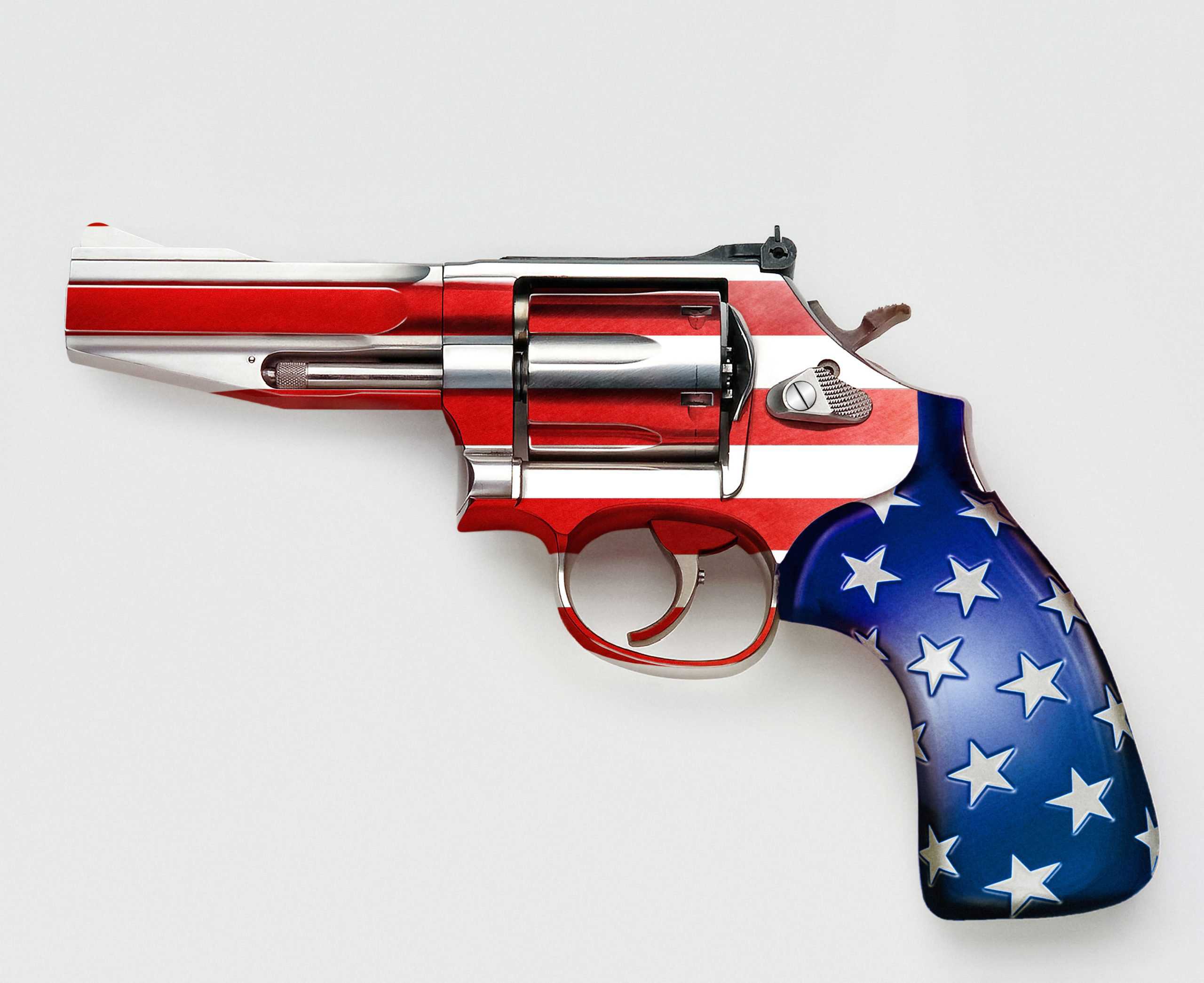
Under the Trump administration, gun laws and regulations are being challenged across the United States. Some proposed changes would strengthen gun control. For example, Vermont lawmakers are considering banning guns in bars; in New Mexico, House Bill 12 would amend the Extreme Risk Protection Order (ERPO) Act so law enforcement officers could fire a petition based on information and require respondents to relinquish their guns if they were seen as a risk. Other states, such as Florida, are looking to reduce gun control measures. Governor Ron DeSantis has been urging for the passage of legislation centered around allowing open carry — though Florida allows permitless concealed carry, open carry is currently prohibited. All of these changes are already challenging to keep up with — and they’re only starting. (Here’s how Florida’s gun laws compare to the rest of the country.)
As you probably know, gun laws vary by state and local levels — and are often shifting. This is why it’s hard for Americans to answer even basic questions about guns and gun ownership laws. Although the right to keep and bear arms is protected by the Second Amendment, states have the authority to implement their own regulations around firearms. 24/7 Wall St. has taken a deep dive into the most common gun law questions and done our best to answer them for you. However, please note that the answers to most of these questions vary based on state and local laws, and are hard to give definitive answers for.
Why Are We Covering Gun Laws?
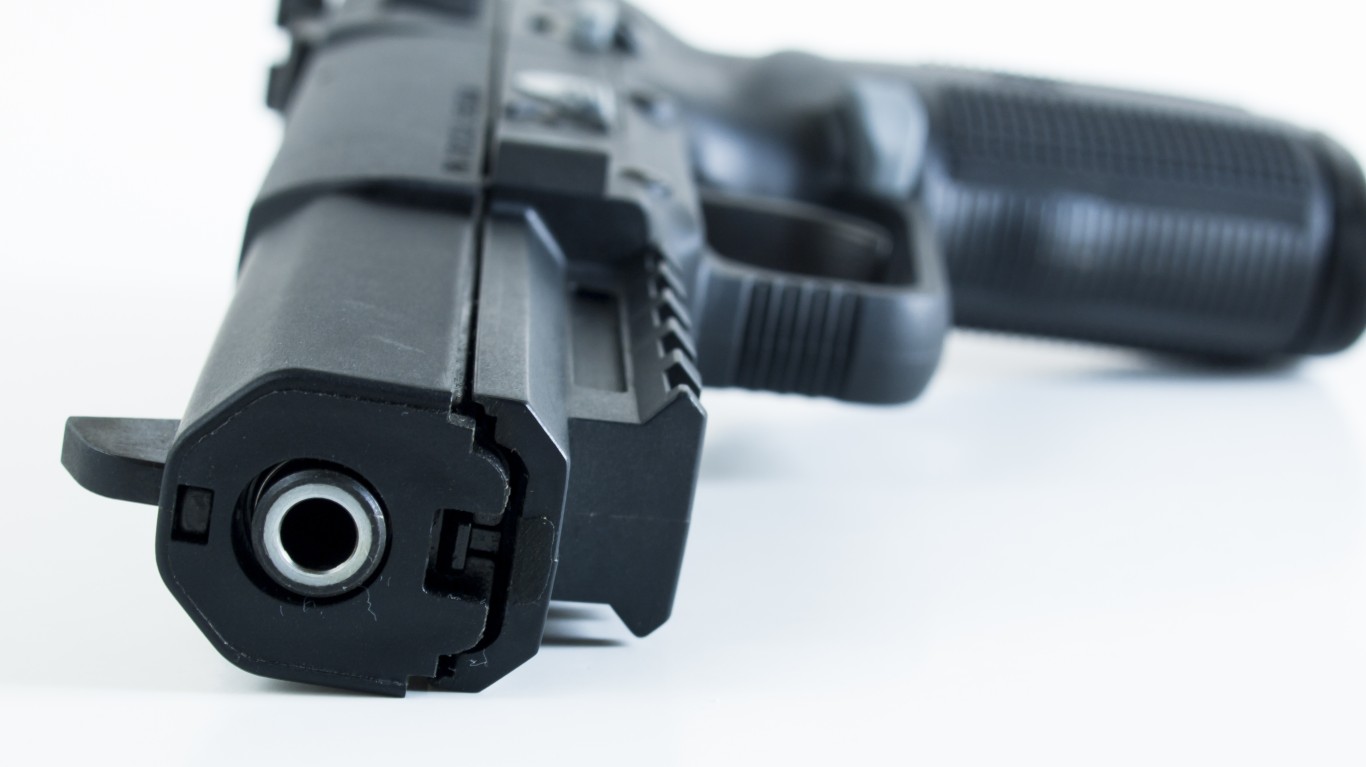
Since 30% of Americans (and counting!) currently own a gun, it’s important to know the laws and regulations around gun ownership in your local area. Furthermore, out of people who don’t own a firearm today, 36% say they could see themselves owning a gun in the future. Additionally, the rate of deadly gun violence in an area can negatively affect the economy. Housing markets, local businesses, and job opportunities can decline when an area is seen as too violent. By understanding more about gun laws and regulations, you’ll position yourself to better engage in conversations around gun ownership, gun control, and gun violence.
Can you answer these questions about gun laws?:
22. Question: Public Transportation

Can you legally carry a firearm on public transportation?
Answer: Maybe

The answer to this question depends on the state and the public transportation system. For example, Chicago prohibits firearms on any public transportation method, and the same goes for all of Amtrak’s train lines.
21. Question: Service Members

Are active-duty service members exempt from any gun laws that apply to civilians?
Answer: No

If a military member is off duty, they are required to follow all civilian gun laws. While on duty, service members must adhere to military regulations regarding firearms.
20. Question: Misdemeanors
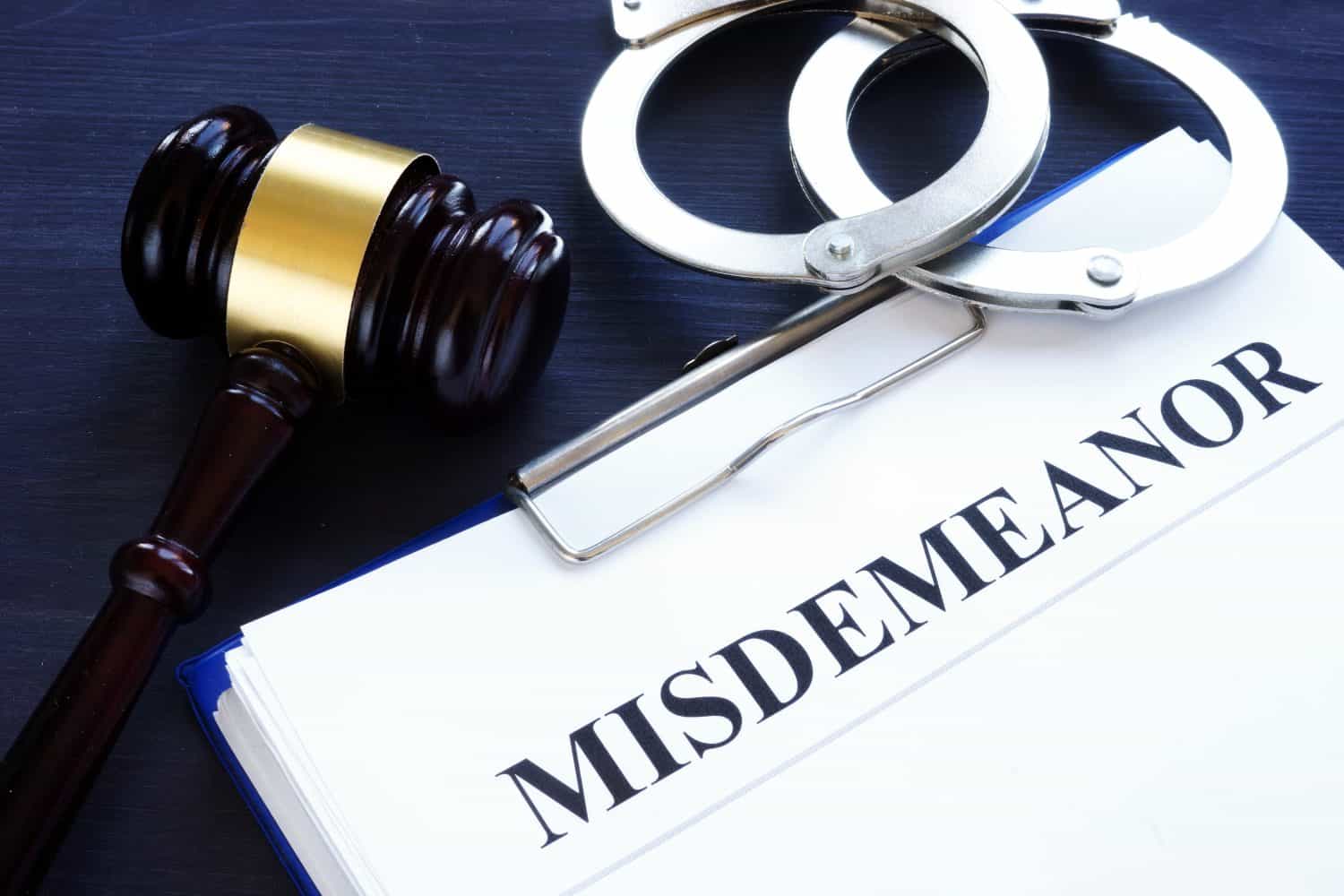
Can someone be denied gun ownership if they have a misdemeanor conviction?
Answer: Yes and No

Individuals convicted of a misdemeanor for domestic violence are prohibited from owning a firearm. In some states, the same restrictions apply to anyone convicted of stalking or repeated DUI. However, in other cases, loopholes exist for someone with a misdemeanor on their record to own a firearm.
19. Question: Machine Guns
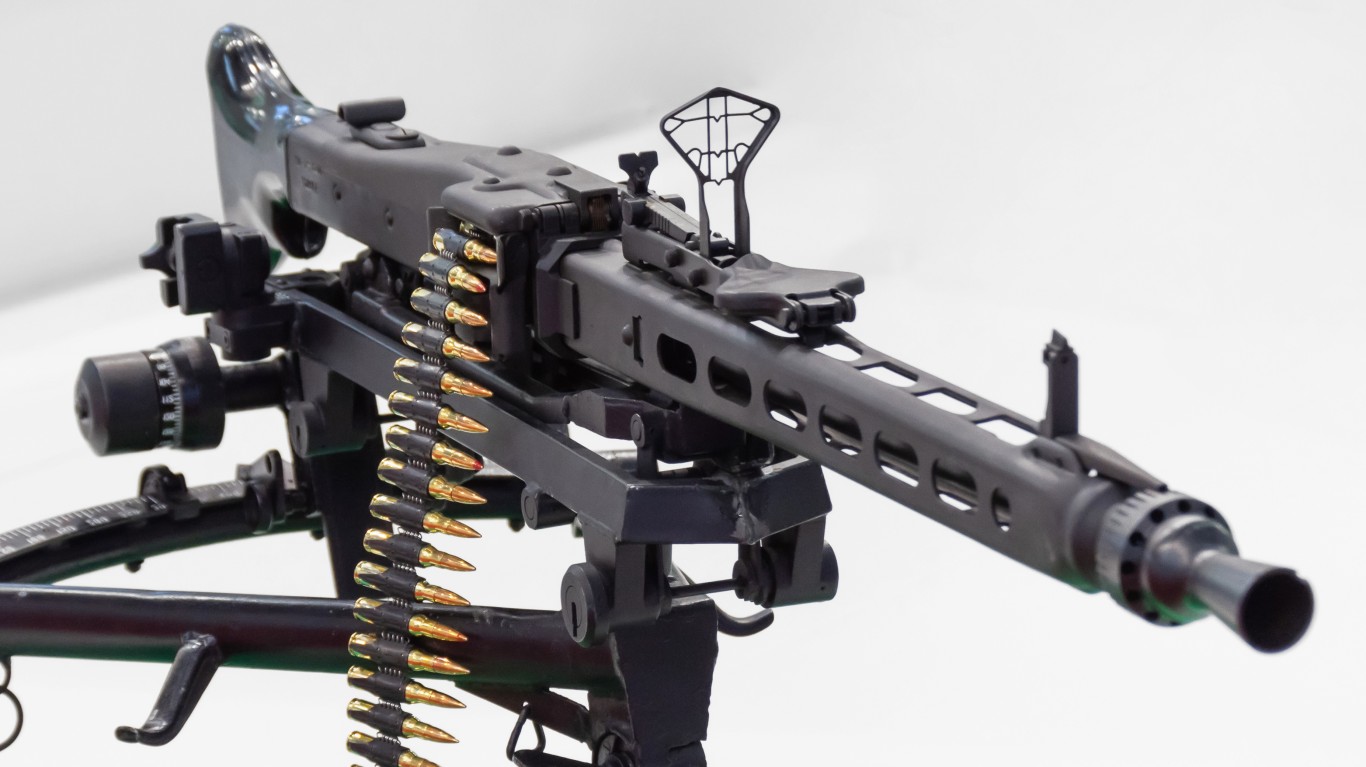
Are you legally able to own a machine gun in the United States?
Answer: In Strict Cases
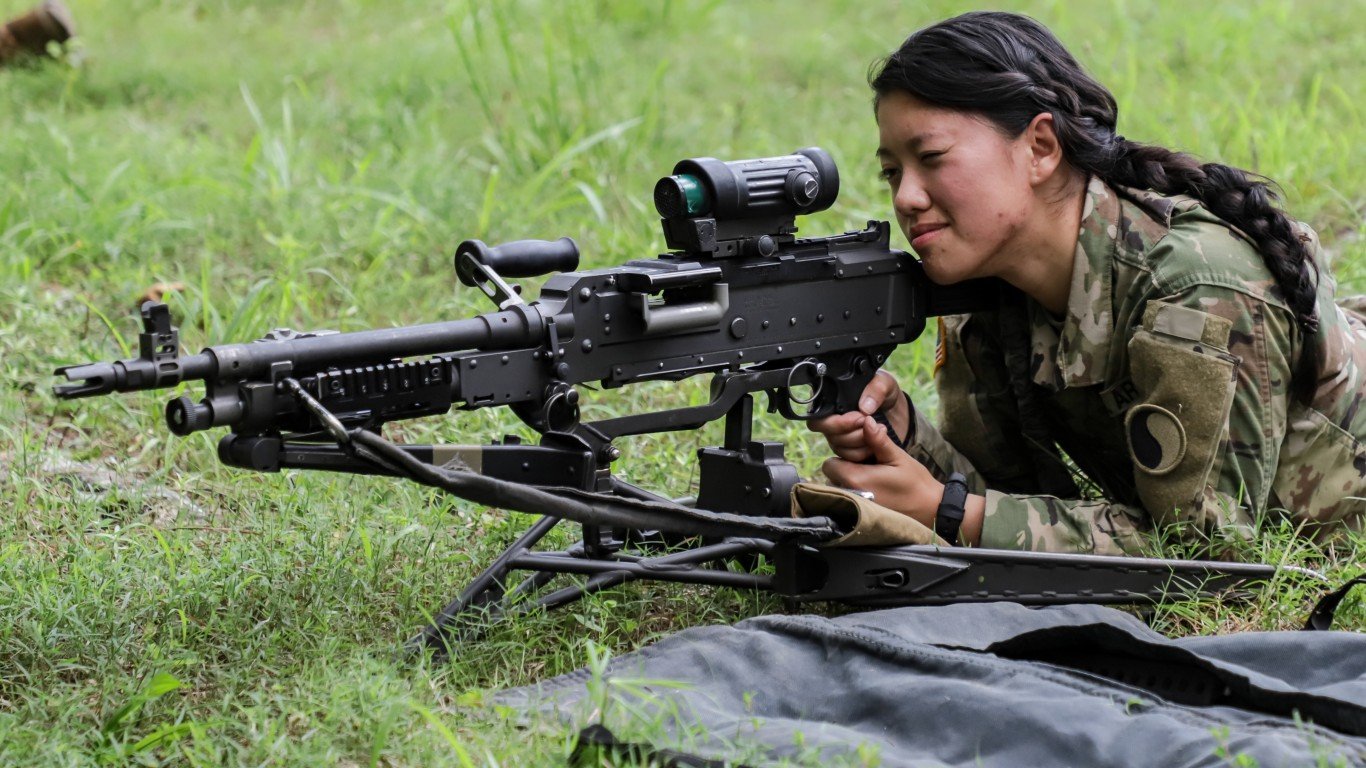
For the most part, any machine gun manufactured before May 19, 1986, can be legally owned in the United States per the National Firearms Act. Owning these weapons would require ATF registration, an extensive background check, and a $200 tax payment. Machine guns manufactured after this date are prohibited from civilian ownership.
18. Question: Gun Manufacturers and Crime
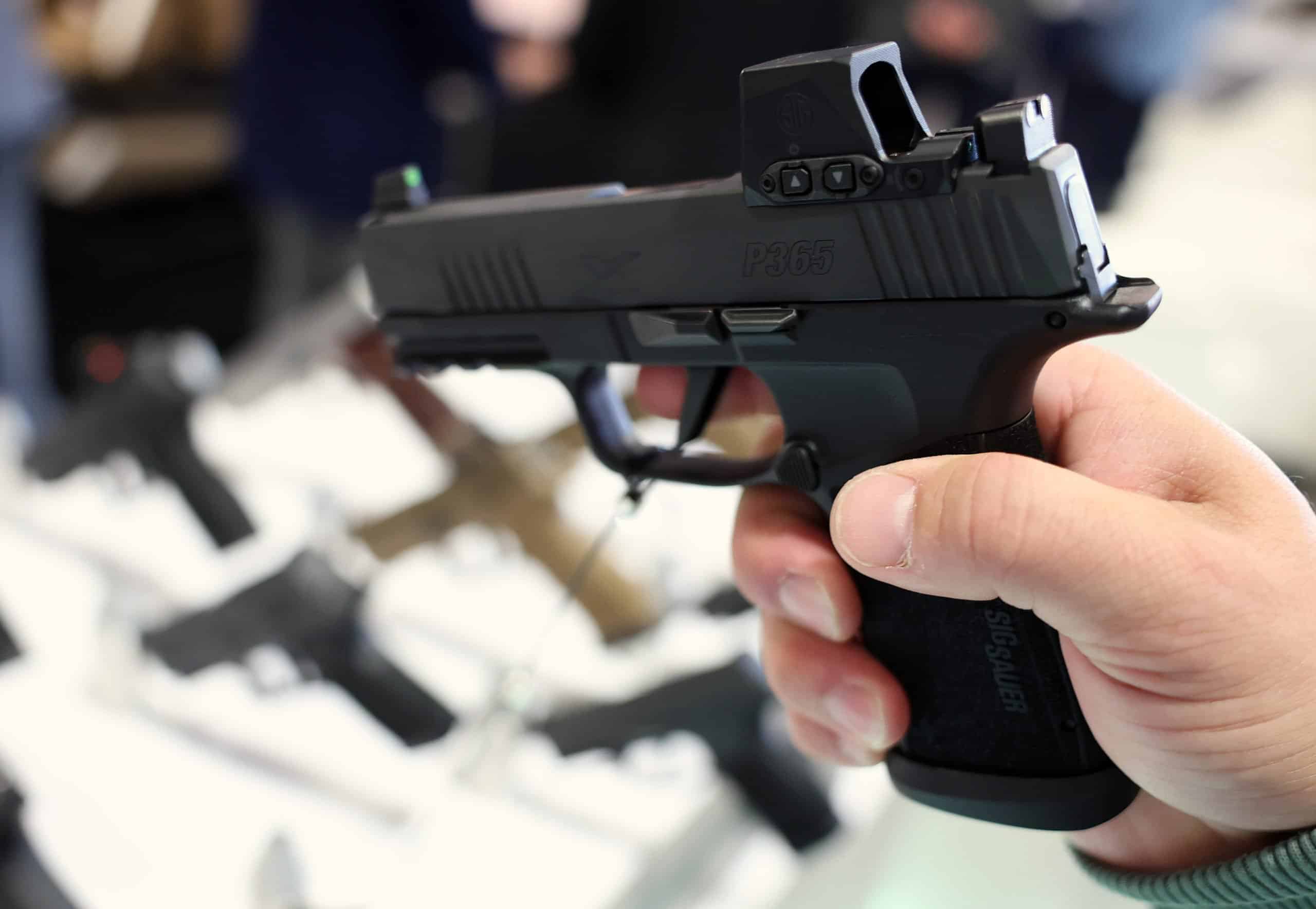
Can a gun manufacturer be sued if a manufactured firearm is used in a crime?
Answer: No, With Exceptions
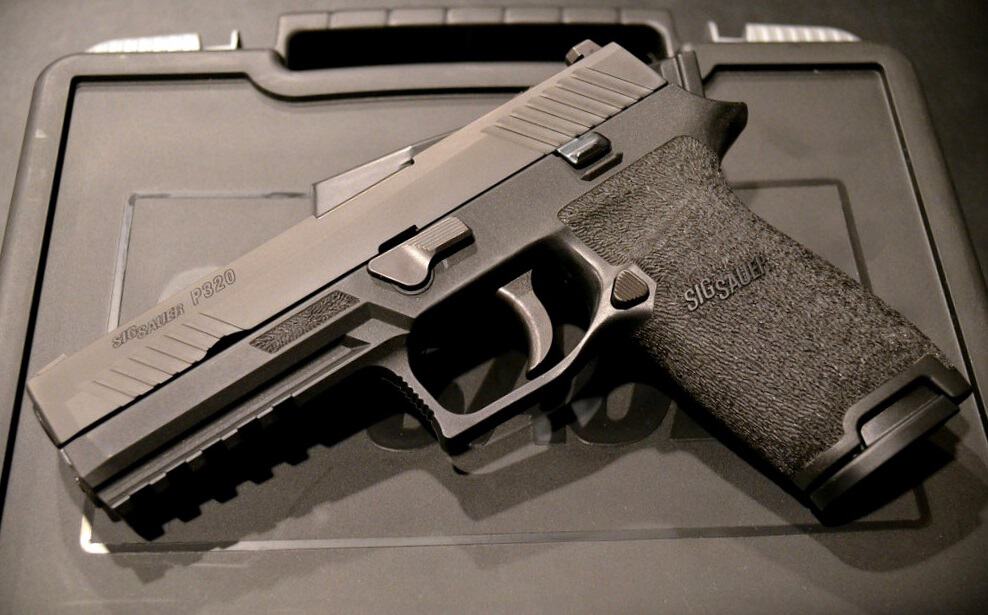
This has long been a heated legal issue, but the Protection of Lawful Commerce in Arms Act (PLCAA) protects firearms manufacturers and dealers against lawsuits. However, in the case of the Sandy Hook shooting, families of the victims were able to successfully win a lawsuit against Remington Firearms with the argument that the company’s deceptive marketing tactics played a role in the shooting.
17. Question: Felonies

Can someone who has previously been convicted of a felony own and or carry a firearm?
Answer: No
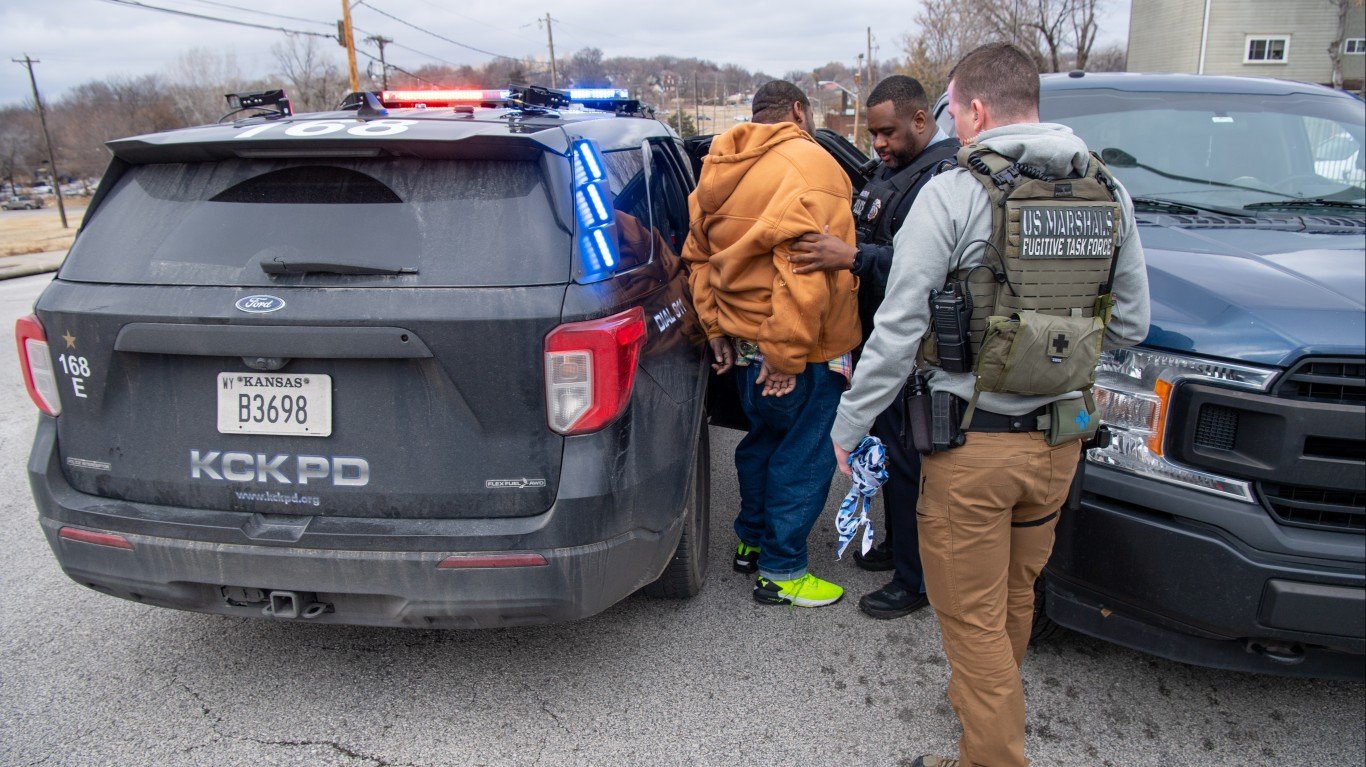
This is a pretty easy one. Federal law has been in place for a while, indicating that anyone convicted of a felony in the past, regardless of the crime, is prohibited from owning a firearm. There are cases in which felons can have their gun ownership rights restored, but doing so requires significant legal work, and success varies by state.
16. Question: Ammunition Sales

Do you need to have a federal firearms license to sell ammunition legally?
Answer: No

Federal law does not currently mandate having a license to sell standard ammunition to the public. However, any seller is responsible for ensuring that a potential buyer is not restricted from owning firearms. Also, states like California mandate that a background check be undertaken for ammunition purchases.
15. Question: Crossing State Lines
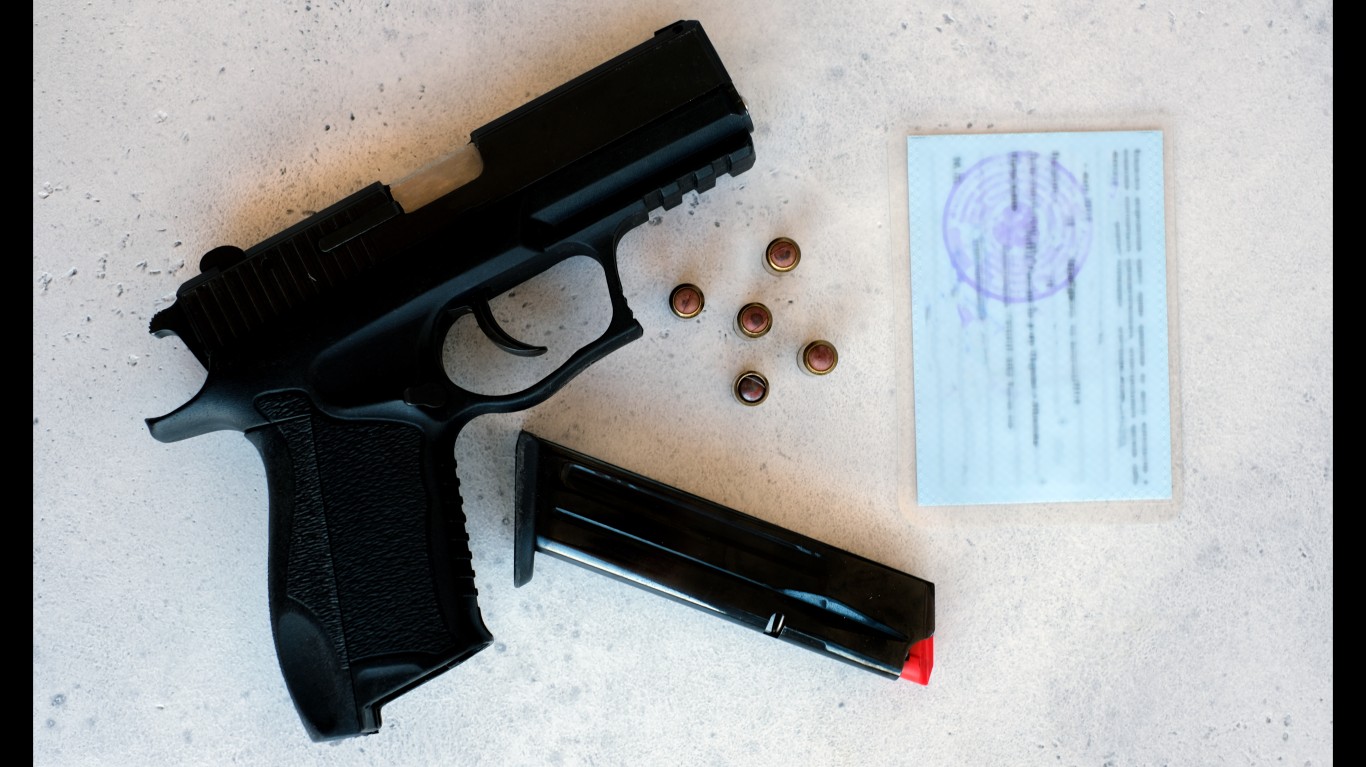
Can you legally take a firearm across state lines?
Answer: Yes
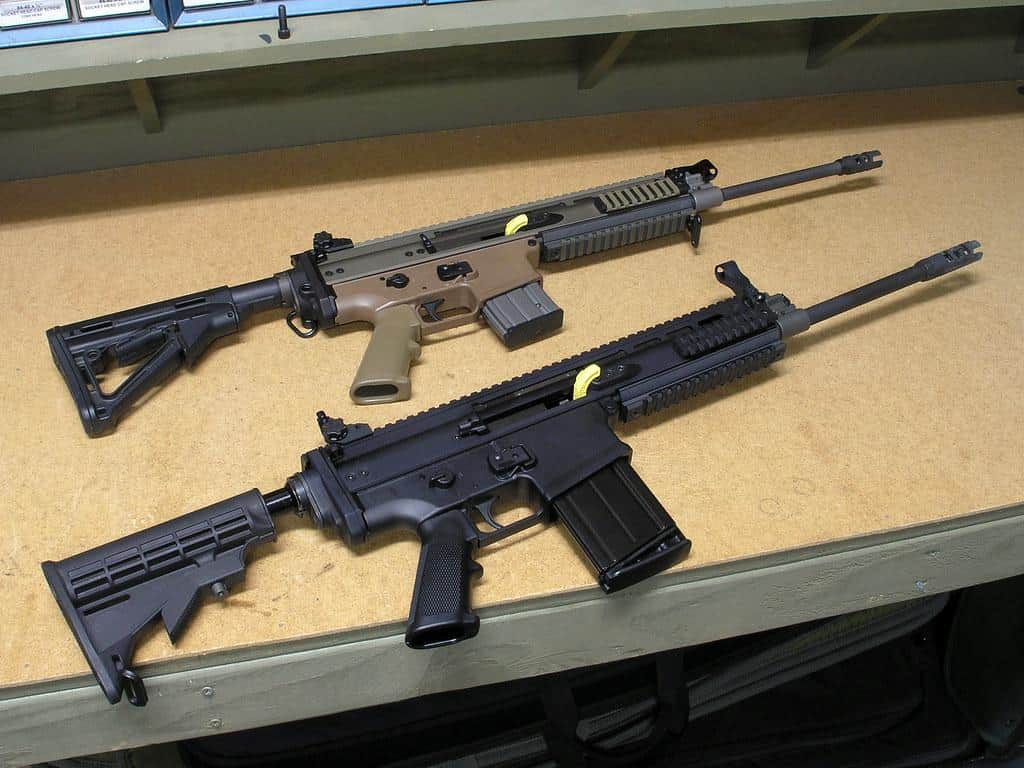
This is among the most essential and simple questions many Americans get wrong. Under the Firearm Owners Protection Act, an individual can transport a firearm across state lines if used for a lawful purpose and locked in a container. However, anyone crossing state lines must be familiar with the laws of any state they enter, as individual state laws vary, especially around reciprocity for concealed carry permits.
14. Question: College Campuses

Can guns be carried on a college campus?
Answer: Yes, In Some States

The short answer to this question is yes, especially in places like Texas, where guns can be legally carried openly without a permit. However, this law gets significantly tighter in states like California, where firearms are strictly prohibited on college campuses unless carried by members of law enforcement.
13. Question: Magazine Capacity Limits

Are there any limits on magazine capacity?
Answer: Yes, In Certain States
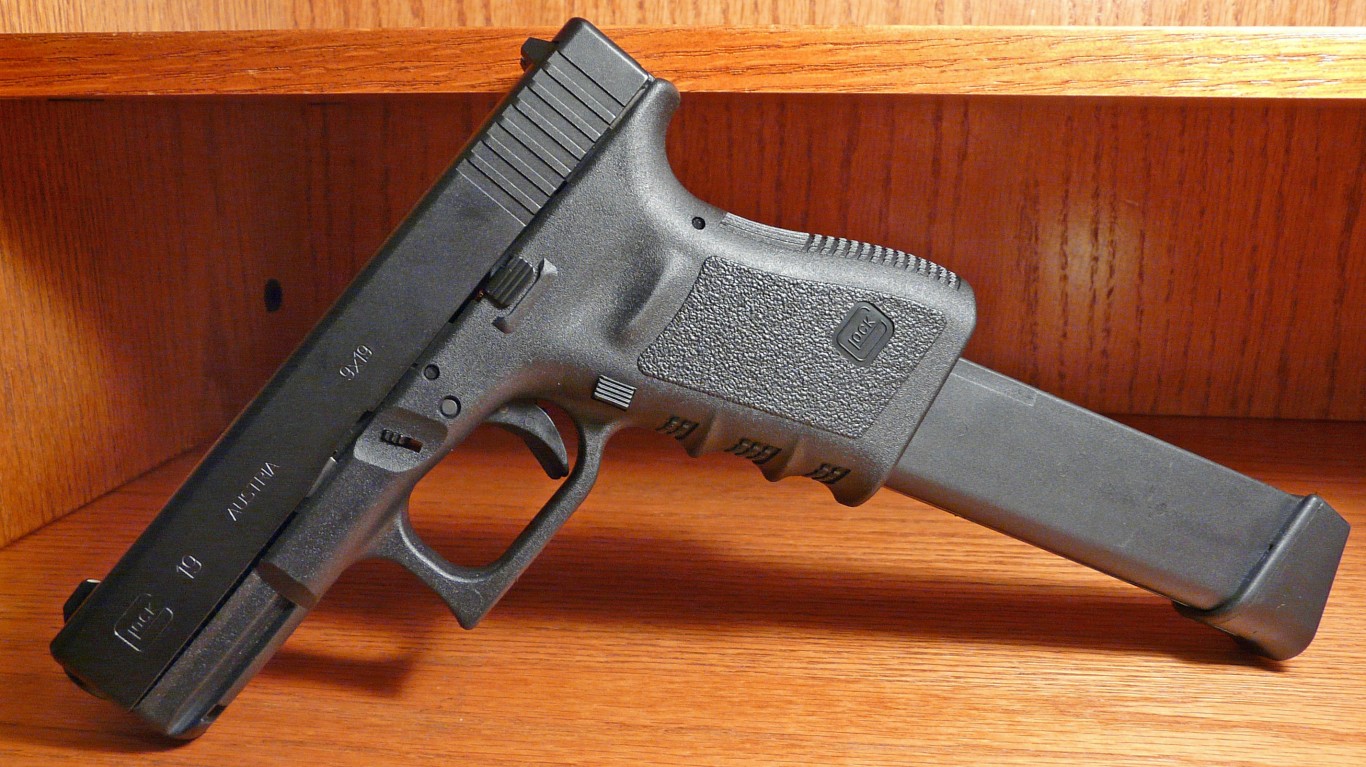
As of September 2023, 14 states and Washington, D.C. have enabled magazine capacity restrictions. In many states, the maximum allowed capacity is between 10 and 20 rounds. For example, California, Maryland, Massachusetts, New Jersey, New York, and Vermont all limit magazines to 10 rounds, while Vermont also extends this rule to handguns to just 15 rounds.
12. Question: Bump Stocks

Bump stocks are frequently in the news. Are they legal?
Answer: No

While bump stocks are still found in the wild, they have been federally banned since 2018. The popularity of this weapon enhancement enables a semiautomatic rifle to fire rapidly, and its use has been under a microscope after being used in several mass shootings in recent years.
11. Question: Background Checks

Can you purchase a firearm at a gun show without requiring a background check?
Answer: Not Really

Per federal law, anyone with a Federal Firearms License (FFL), such as a gun store or other licensee who might sell at a gun show, must perform a background check on any buyer and keep detailed records about the sale. In Florida, this isn’t necessarily true, as you can purchase a firearm at a gun show without any background check due to a loophole known as the “gun show loophole.”
10. Question: Ammunition Restrictions
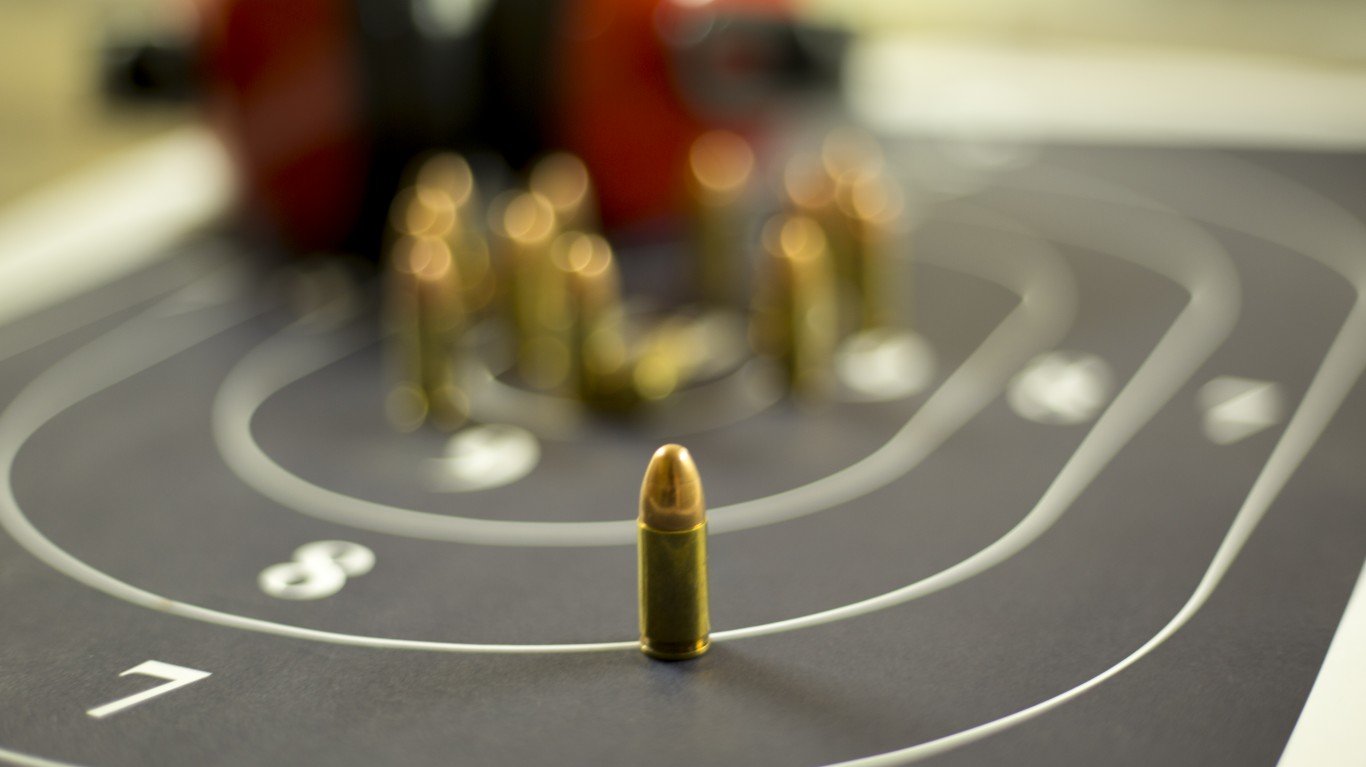
Are there any restrictions on the type of ammunition a single buyer can purchase?
Answer: Yes
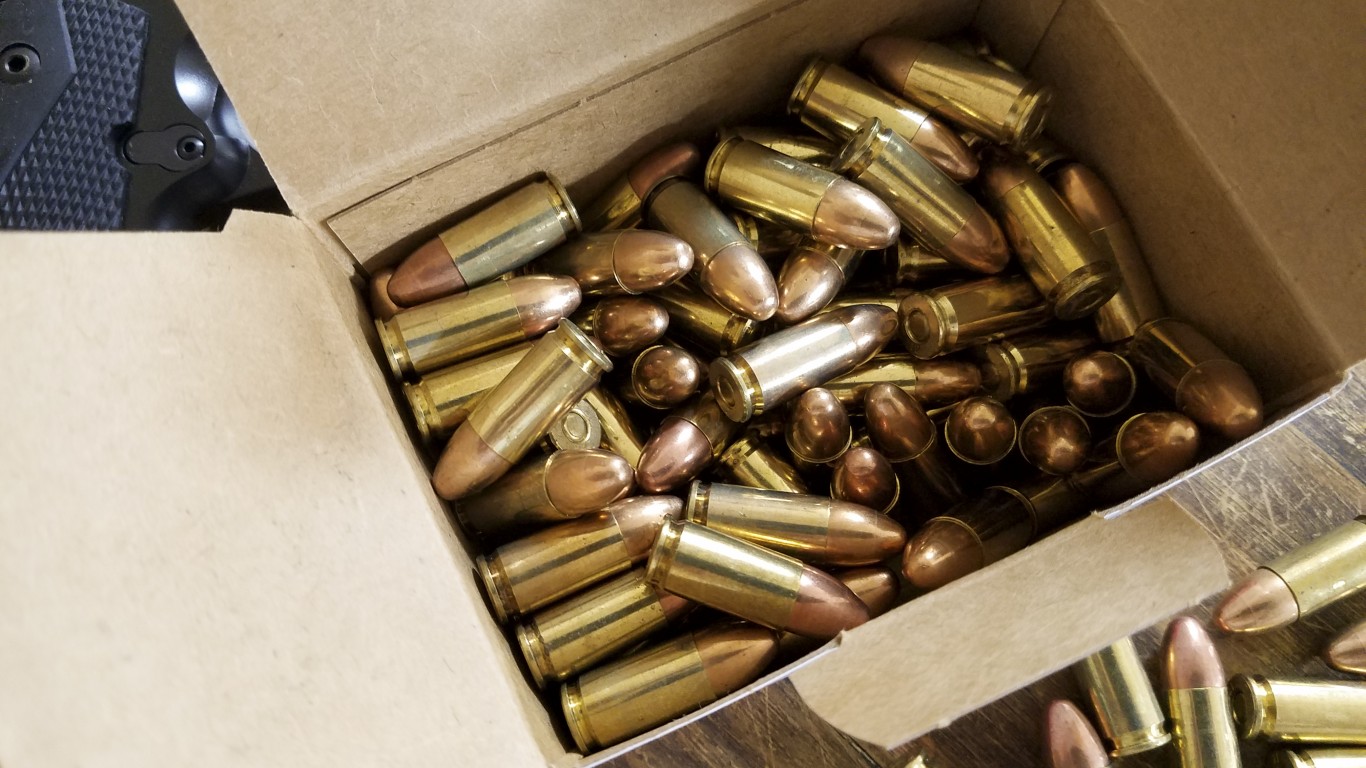
A buyer in the United States cannot purchase or own armor-piercing ammunition due to a federal ban. Federal law also bans handgun ammunition from being sold to anyone under 21 years of age. There are also state limitations based on magazine capacity and locations like California that require a background check on most ammunition purchases.
9. Question: Silencers and Suppressors
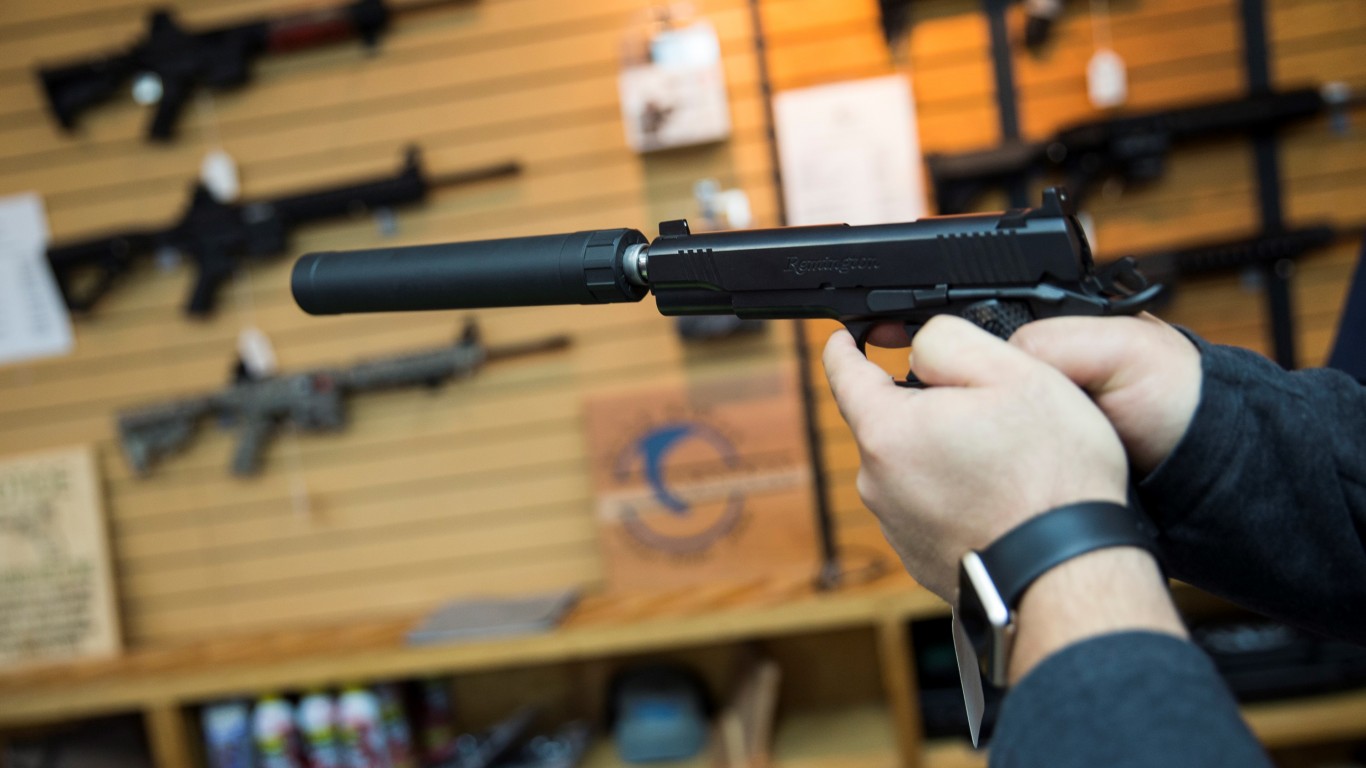
Can someone not in law enforcement or the military use a silencer or gun suppressor?
Answer: Yes
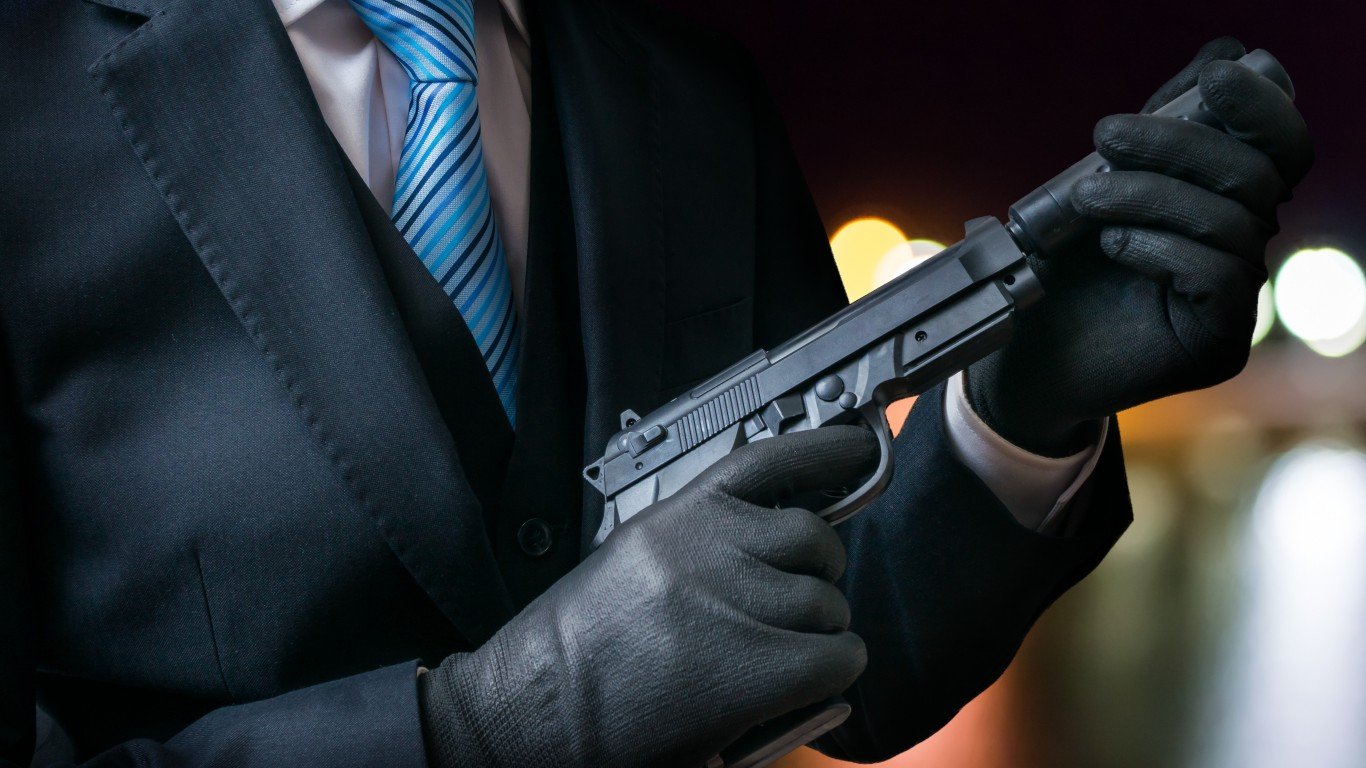
This is a murky one. The short answer is yes. 42 states allow suppressors to be used in conjunction with private firearms. However, to do so, you must register under the National Firearms Act, pay a $200 tax, and submit to an even more extensive background check.
8. Question: Make Your Own

Are you legally allowed to make your firearms?
Answer: Yes

This is a tough question as the guidelines vary and are coming under increasing scrutiny as 3D printing becomes more popular. With 3D printing, people can manufacture guns that can pass through metal detectors. However, making firearms for personal use is legal if the individual complies with federal laws. Any gun manufactured privately must be legally registered with a serial number.
7. Question: Assault Weapon Bans
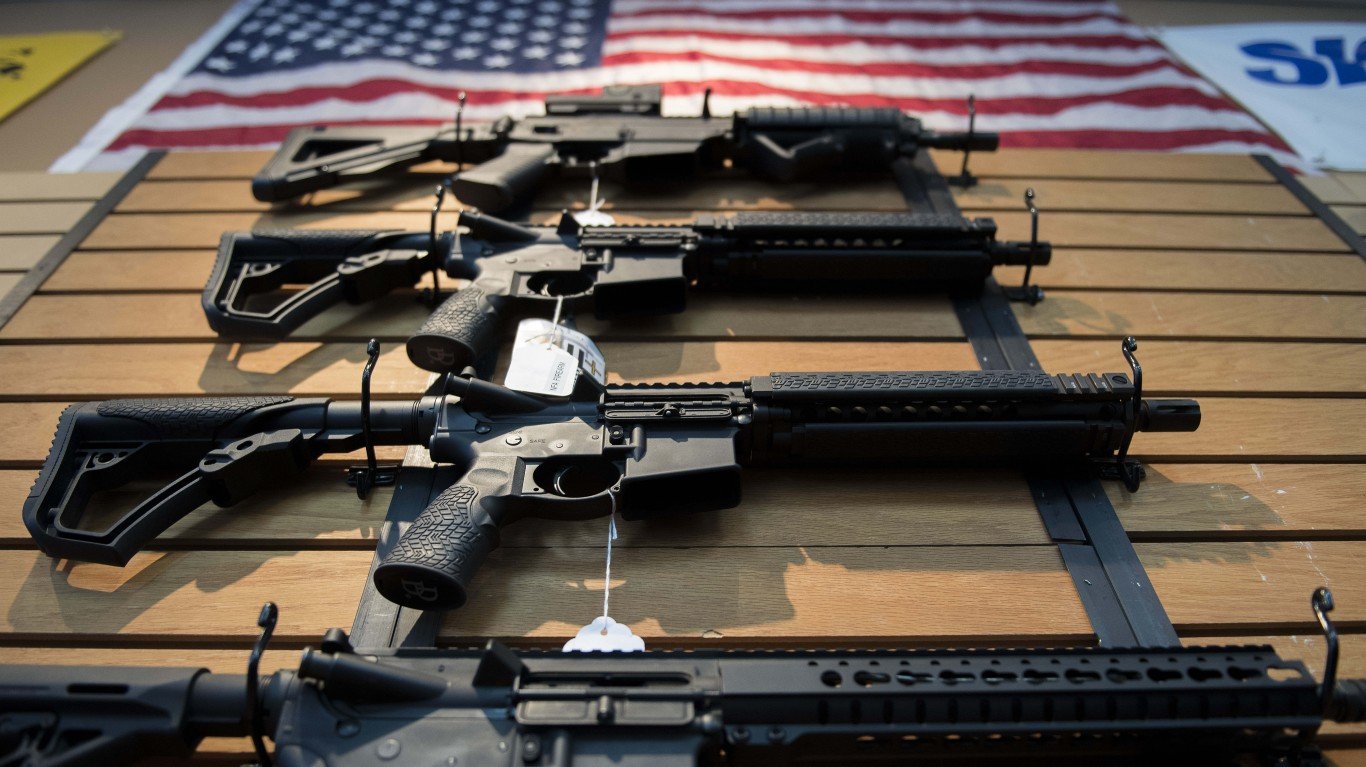
Are assault weapons banned nationwide?
Answer: No

This question often confuses many Americans, as President Bill Clinton had previously enacted a 10-year ban on assault weapons. However, this ban expired in 2004, which allowed states like New York, California, and Connecticut to enact their restrictions on assault weapons.
6. Question: Federal Waiting Period
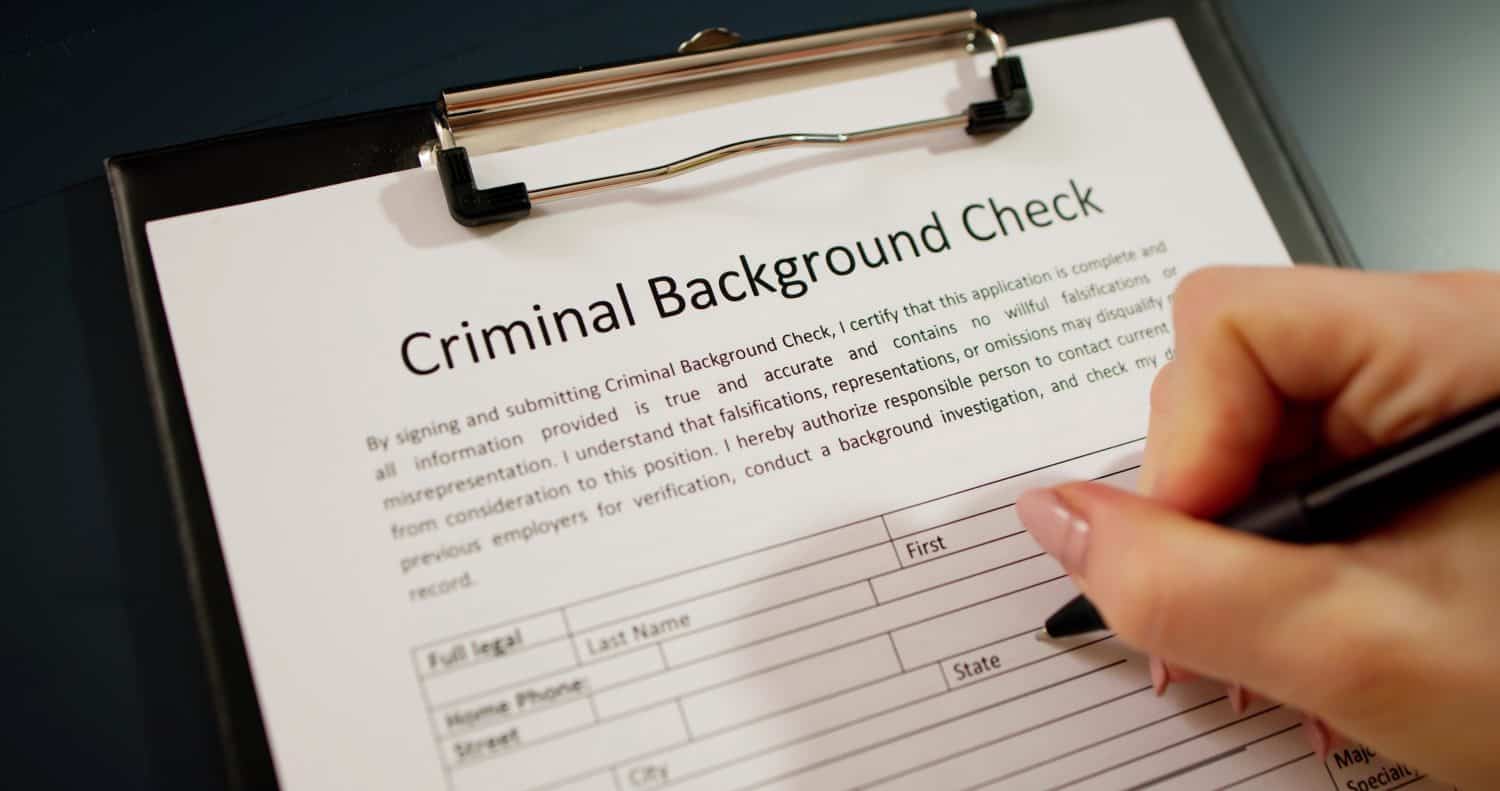
What is the current federal waiting period to purchase and own a firearm?
Answer: Varies By State
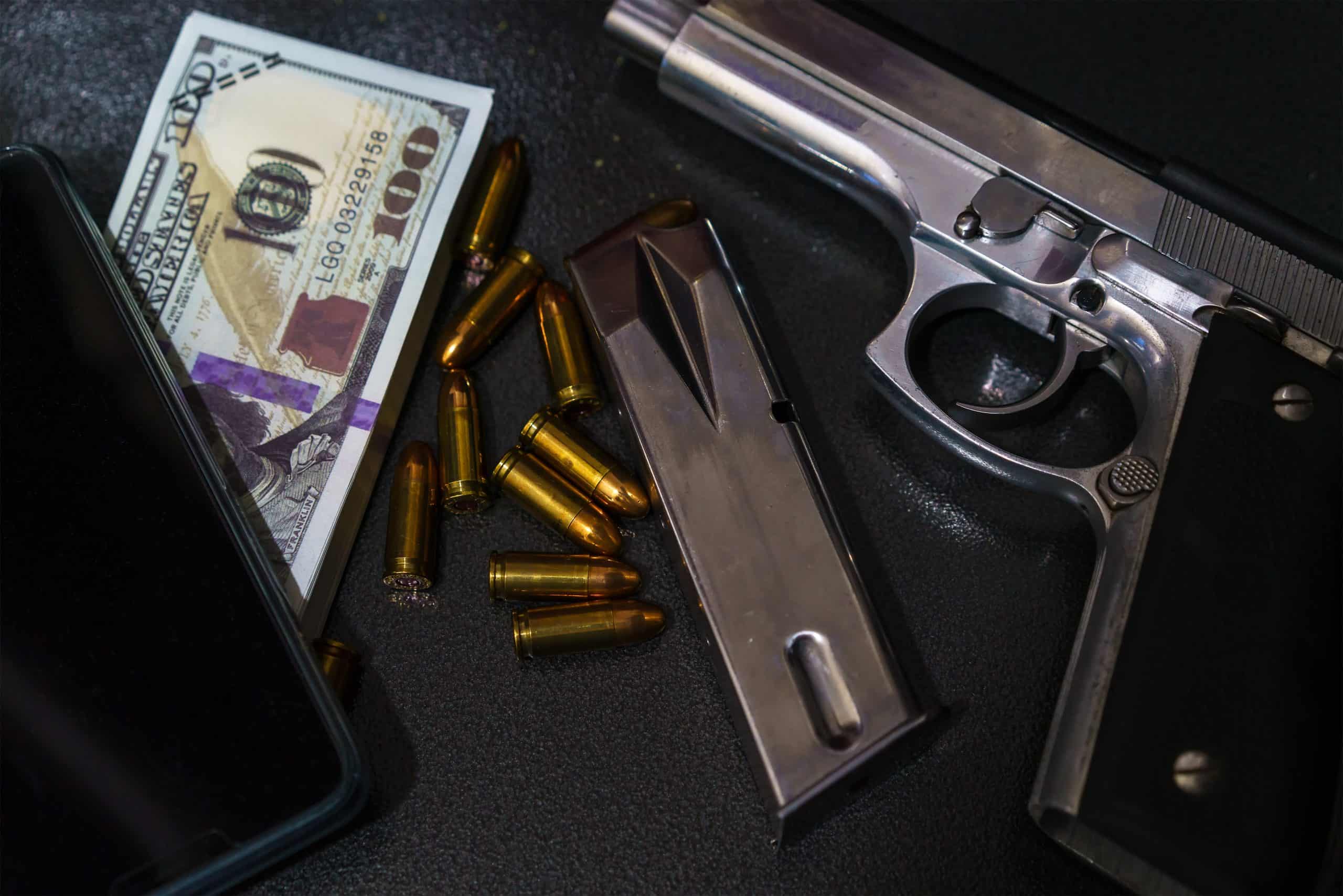
In terms of federal law, you don’t have to worry about a waiting period, but the laws can get a little more complicated when you look state-by-state. In California, you’d have to push past a 10-day waiting period for the background check to complete, while Florida only requires a 3-day waiting period for handgun purchases.
5. Question: Where to Carry

Can you legally carry a firearm in every state?
Answer: Yes, With Restrictions
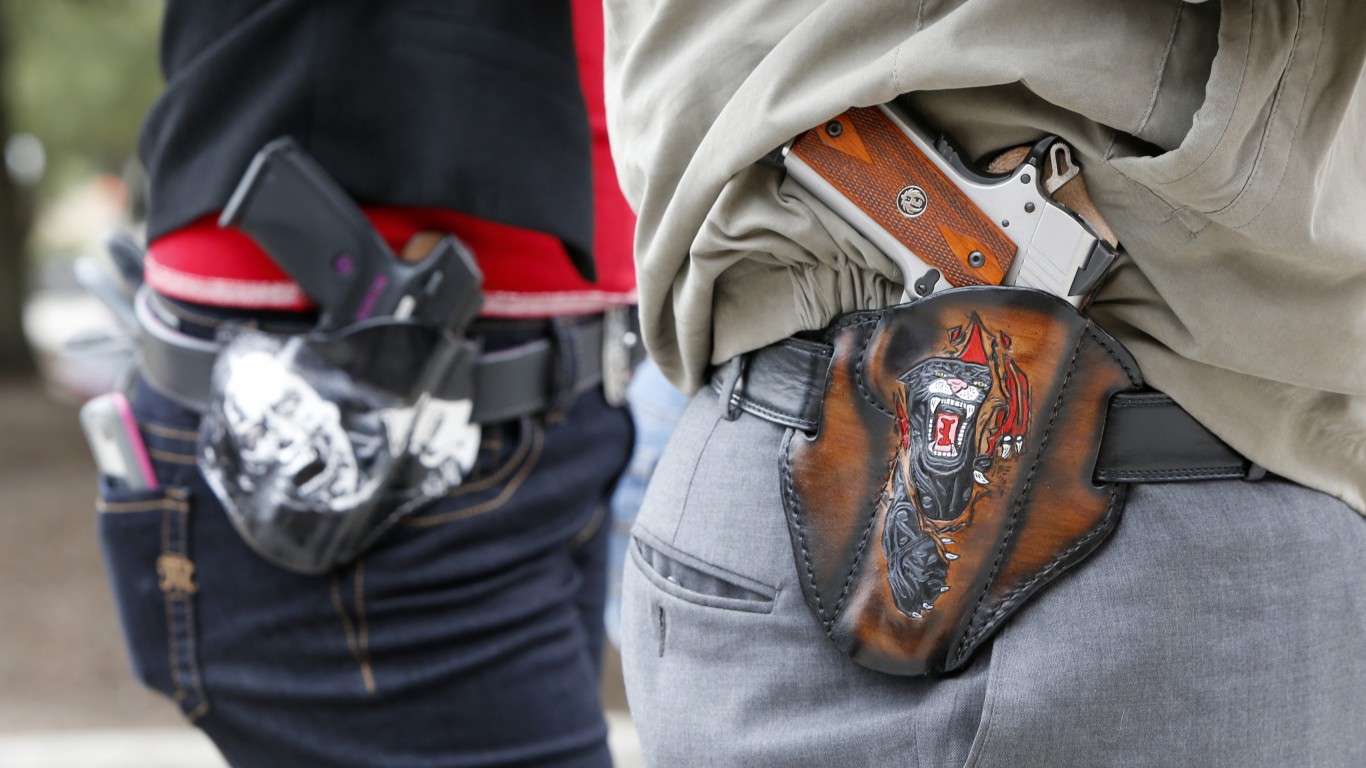
Every state allows people to carry firearms under certain conditions. Anyone doing so needs a permit, like a concealed carry permit, that restricts how a weapon can be carried or displayed on one’s person. For example, you can carry it openly without a permit in Texas, while New York and Florida have stricter rules.
4. Question: Purchasing Limits
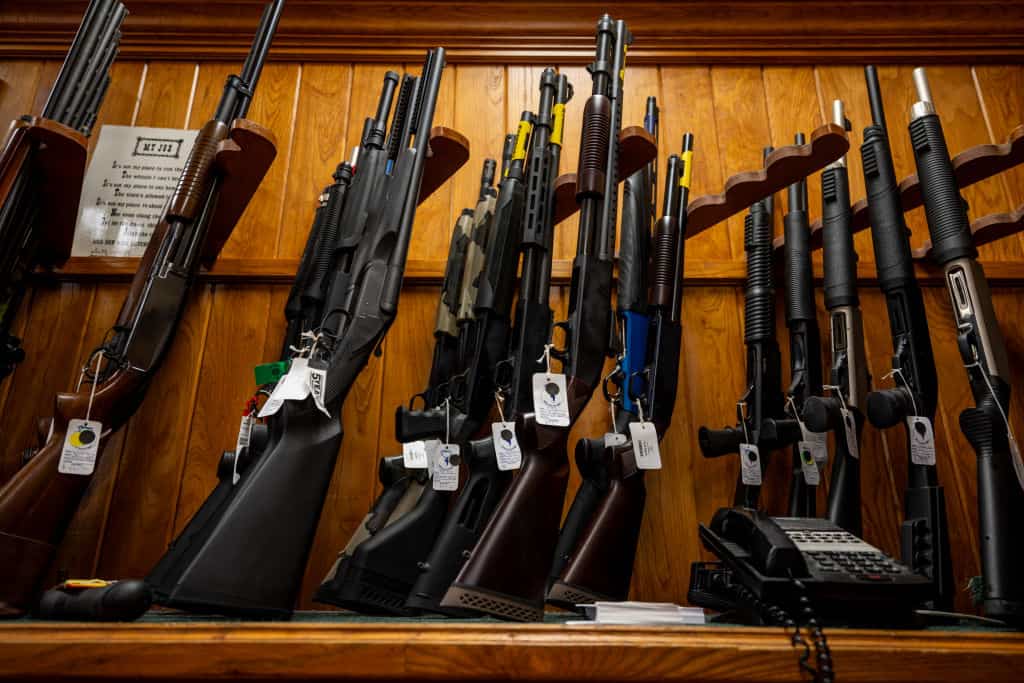
If you walk into a gun store, how many guns can one person purchase at a time?
Answer: No Restrictions
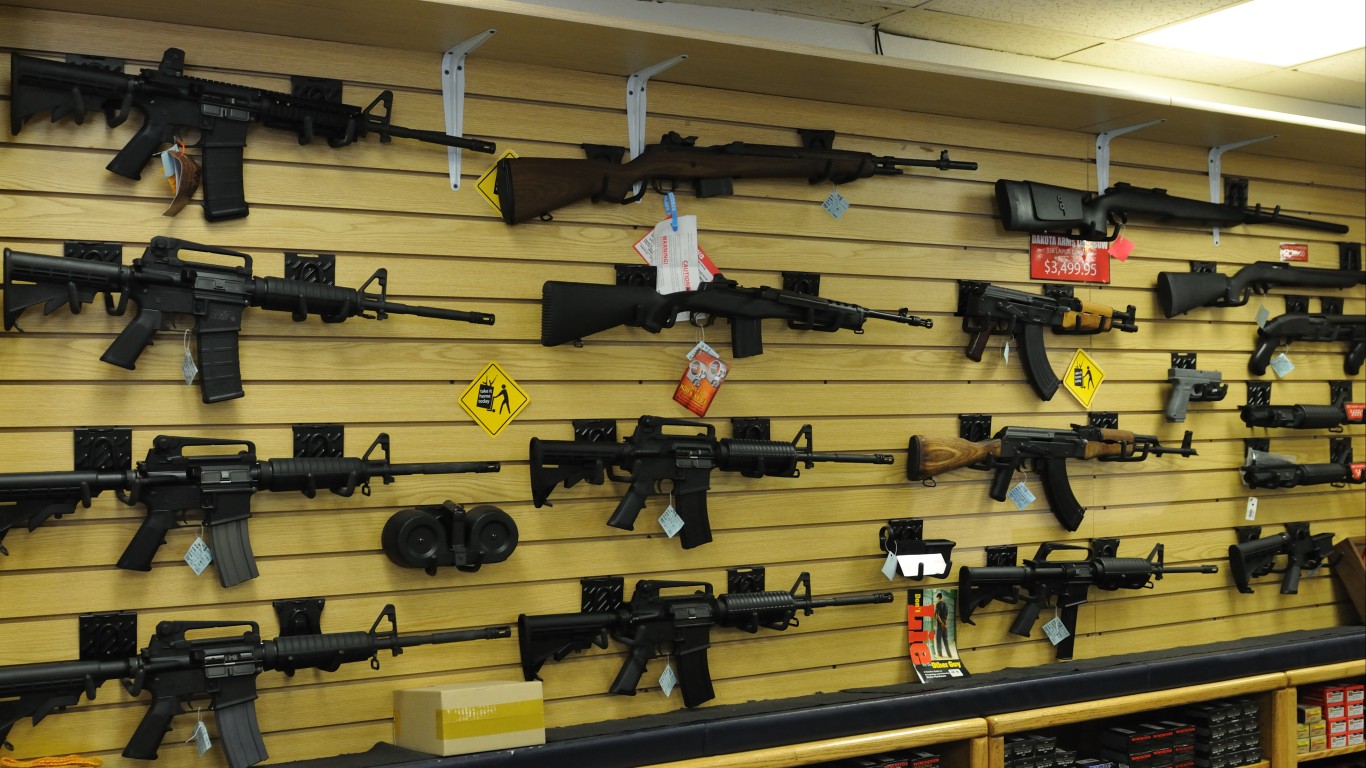
Federal law does not directly prohibit or restrict the number of firearms a single individual can purchase at one time. However, there’s a major caveat: if you purchase multiple guns at one time, the sale would have to be reported to the ATF. Additionally, states like California do restrict handgun buyers to a single gun or rifle purchase per month.
3. Question: Private Gun Sales
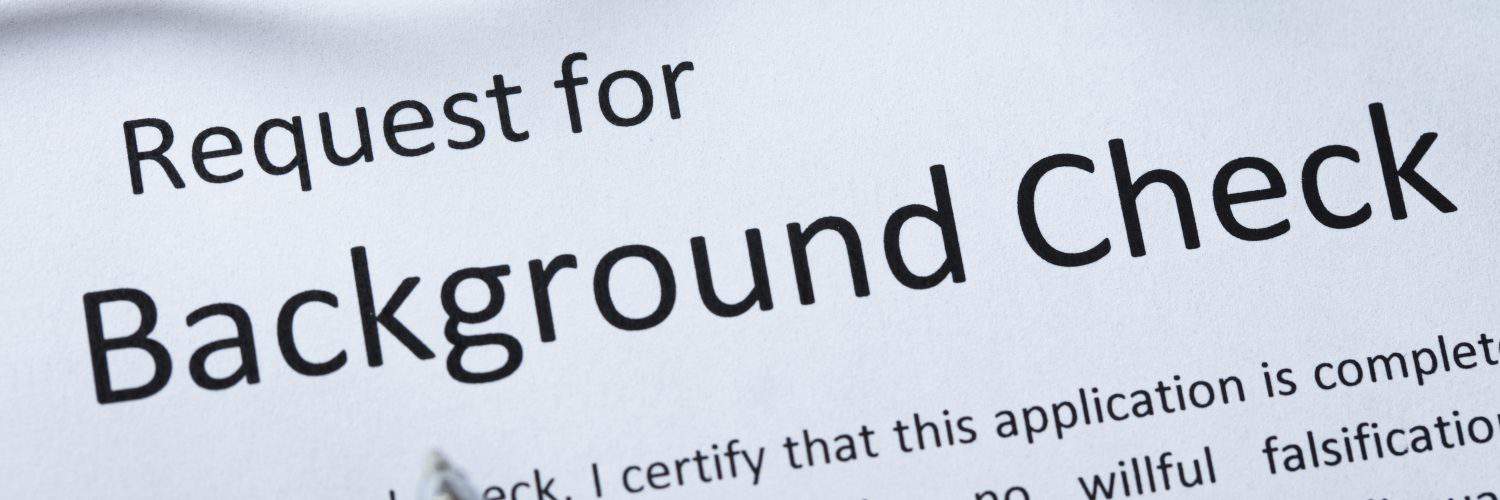
Do you need to complete a background check if you are selling a gun privately?
Answer: No

Interestingly enough, no existing federal law prohibits or restricts private firearm sales without a background check being completed. However, states like California, New York, Rhode Island, Hawaii, and others have varying degrees of state-based laws that would allow for private gun transactions. In total, 22 states and Washington, D.C., have laws requiring background checks for a private transfer.
2. Question: Online Purchasing
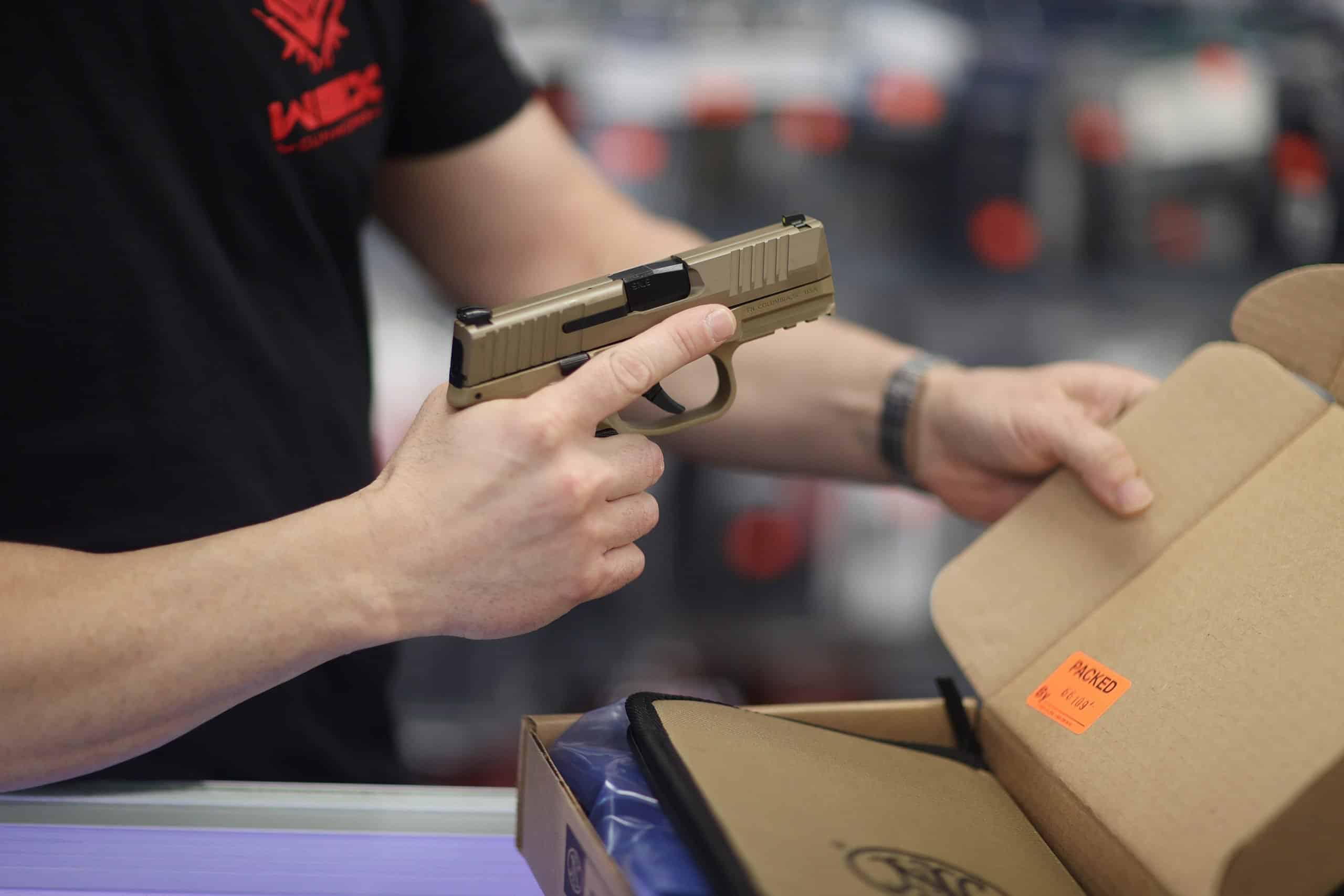
Can you purchase a gun or firearm online and ship it to your home?
Answer: No
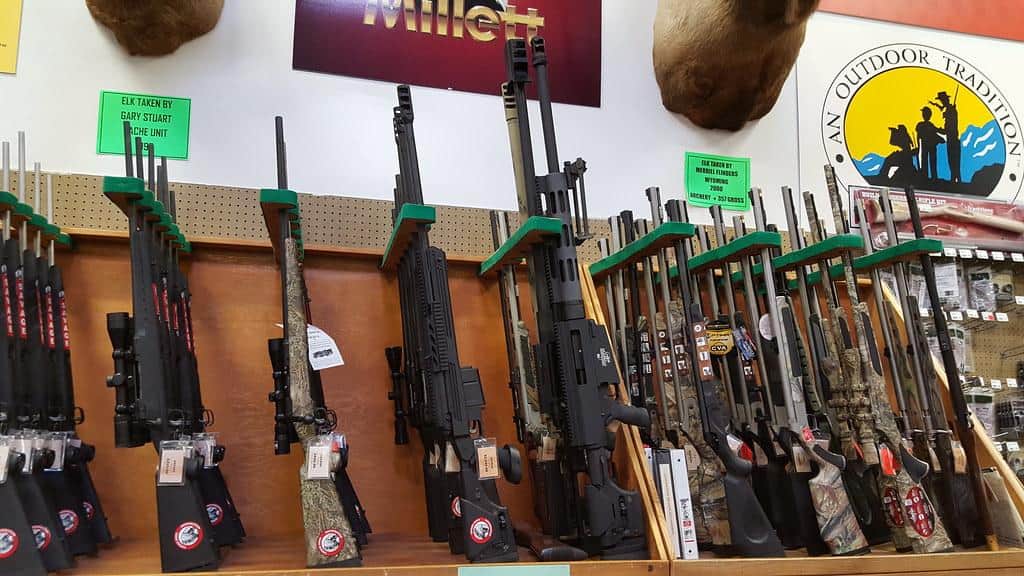
Anytime a firearm is purchased online, it must be shipped to a licensed firearm dealer or gun store where a background check can be completed. Pending the background check’s approval, a firearm transfer can occur to the intended buyer. Only antique firearms manufactured before 1899 can be shipped to your home.
1. Question: Purchasing Ages
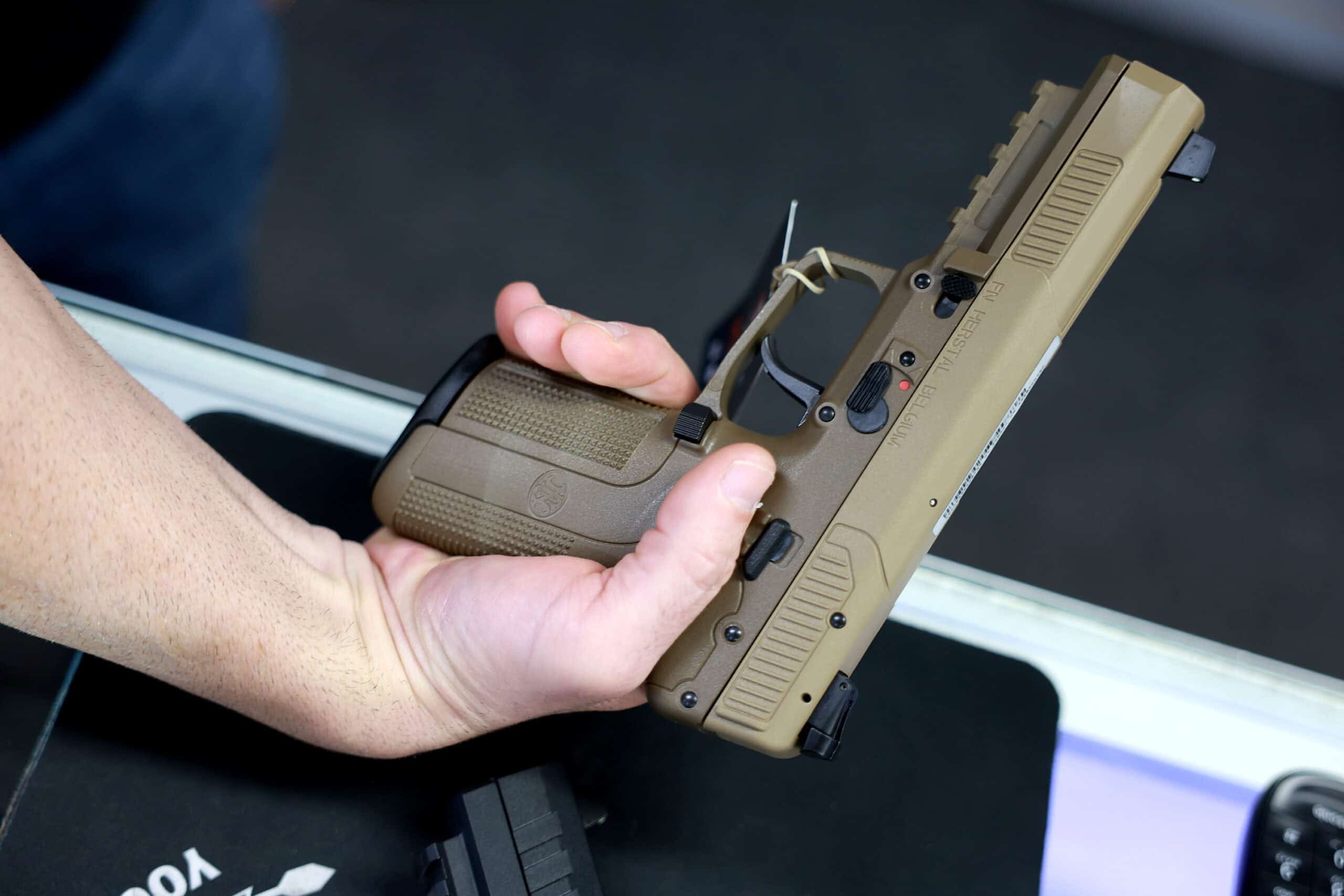
How old must you be to purchase a handgun in the United States?
Answer: 21
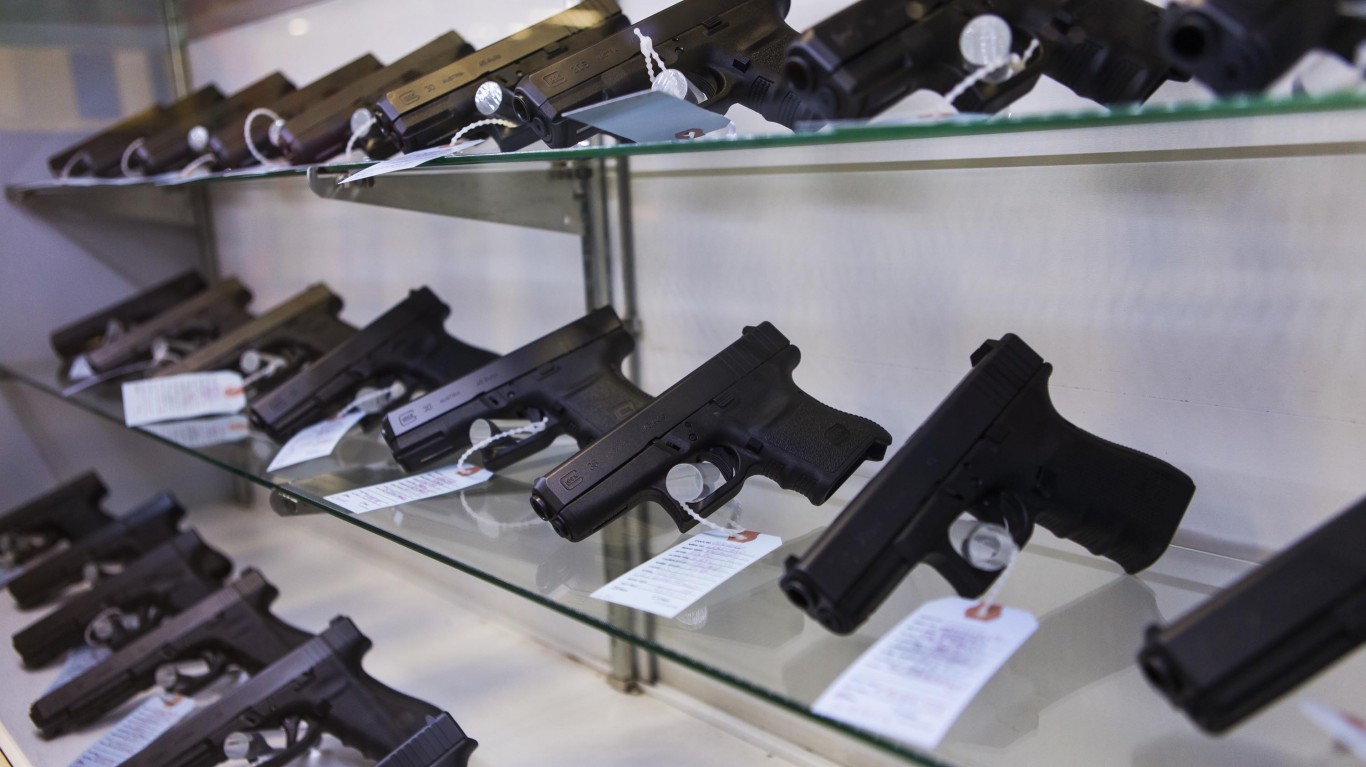
In the United States, federal law states that a minimum age of 21 is required to purchase a handgun. Strangely, the same federal laws also allow an 18-year-old to buy both a rifle and a shotgun, so gun advocates hope change the law so it’s the same age for everything. Recently, the 5th Circuit found that banning handgun sales to people under 21 years old is unconstitutional — but this situation is still developing.
The post Americans Think They Know Gun Laws, but Here’s What They Get Wrong appeared first on 24/7 Wall St..




























































































































































